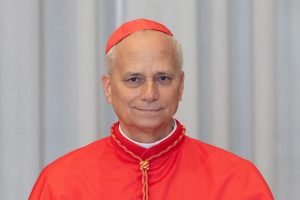Breaking Walls

I t is of great significance that Robert Francis Prevost, who has succeeded Pope Francis, repeated the word ‘peace’ ten times during his speech delivered recently at Saint Peter’s Square. He also used the word ‘bridge’ three times. At the same time as the new Pope he assumed the name – Leo XIV – referencing Leo XIII who made social justice a key Catholic priority at the end of the 19th century. Pope Leo XIV owes his rise so much to Francis. Appointed bishop of Chiclayo, Peru, by Francis in 2014, he was called to Rome to head the strategic Congregation for Bishops in 2023 and made a cardinal the same year. It cannot be a coincidence that Pope Leo echoed the key words of ‘peace’ and ‘bridge’ from his predecessor’s lexicon.
Francis broke himself free from the shackles of a highly conservative papacy and stood out against injustice to the poor, migrants and war. When he died and his successor was being chosen, it was feared whether the new Pope would revert to the old, conservative order or continue with the reforms started by Francis making the fight against abuses and corruption in church a key principle of his doctrine. For Francis, the social question was primarily about those ‘without,’ the ‘homeless,’ ‘jobless,’ and ‘landless.’ Leo XIV, who hails from both North and South America, seems to have sent the message across with his repeated use of words, central to Francis’ concept of papacy, that he is ready to continue with the legacy. For Francis ‘bridge” was always preferable to ‘walls’ and he amply demonstrated it by taking an unambivalent stand against war and nuclear arms. “A person who thinks only about building walls, wherever they may be, and not building bridges, is not Christian,” Francis had said. In fact, he refused to blame Russian President Vladimir Putin for invading Ukraine stating the North Atlantic Treaty Organisation (NATO) had provoked him to take the step. The question is whether Pope Leo XIV will position himself as Francis’ heir. This is because the world has changed so much since Francis assumed papacy in 2013 when there was neither a war in Ukraine nor unprecedented devastation in Gaza.
The Islamic State organisation had not yet taken control of parts of Syria and Iraq. Yet, the Argentine pope, who foresaw what he phrased as “a third world war in pieces,” gradually made ‘peace’ the key component of his doctrine. He deemed the possession of nuclear weapons illegitimate, rejecting deterrence and the concept of a just war, a notion crafted by generations of Christian thinkers. Now is the time for his successor to make his own voice heard. However, the walls Francis talked about are now higher than ever. Trump was reelected US President in November 2024 and since assuming charge he has built tariff walls putting international trade and commerce and the life of the common man in jeopardy like never before. Likewise, Europe is adopting increasingly restrictive legislation and providing funds to Mediterranean countries to build walls against migrants even before they reach the continent. Against this backdrop the election of the first American Pope is of utmost importance.
The Chicago-born Robert Prevost, now Pope Leo XIV, can be seen as a strong, progressive response to the signs of the times. While senior Catholic figures around President Trump are busy implementing an insular MAGA (Make America Great Again) agenda, the new Pope from the USA who spent two decades working in one of the poorest regions of Peru, could be expected to don Francis’ mantle and lead the world to sanity. His previous posts on a social media account under his name suggest he shared Francis’s strand stand on the Trump administration’s draconian immigration policies. This is a much needed voice in an era of rising nationalism which poses a grave threat to global responses to challenges such as migration and the climate emergency.
News